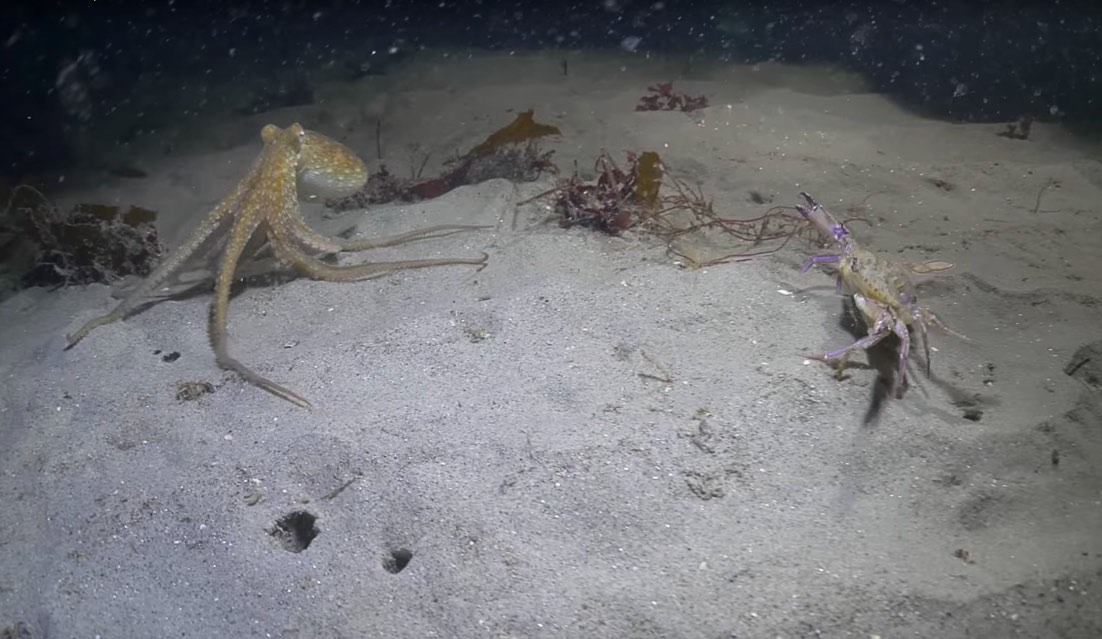Octopus vs. Crab Showdown Ends with a Twist in Startling Video
Things weren't looking good for a swimmer crab under the glare of two divers' spotlights in Monterey Bay, California. The crab was being doggedly pursued by a red octopus and couldn't seem to make an escape.
And then, a "deux ex machina" of an ending: In swooped a harbor seal to scarf down the octopus in a cloud of blood and sand.
Surprising for sure, but also a typical move for the seal that the two filming divers have dubbed Whiskers. The sleek sea mammal has learned that the divers' lights often illuminate a promising meal, filmmakers Connor Gallagher and Patrick Webster told National Geographic. [Beastly Feasts: Amazing Photos of Animals and Their Prey]
"We'll see him [Whiskers] start to stalk an individual slowly and all of the sudden the chase is on, and he'll pop out of a crack with a rockfish or halfmoon in his mouth," Gallagher told the news organization.

Gallagher posted the video to his Facebook page earlier this month. Monterey Bay is the starting point of Monterey Canyon, a submarine canyon a mile tall that begins at Moss Landing, California, right in the center of the bay. The marine ecosystem is rich in life, with the Monterey Bay National Marine Sanctuary hosting 34 species of marine mammals and at least 535 species of fish, according to the National Oceanic and Atmospheric Administration (NOAA).
The East Pacific red octopus (Octopus rubescens) that met its unfortunate end in the new footage is a common species in the shallow coastal waters of North America. Its ink — some of which is visible in the cloud of sand and blood kicked up by the seal attack — is a unique reddish-brown. Though the octopus in the video lost its life in a sneak attack, these octopuses are not without defenses: Their bite is painfully toxic, according to the Seattle Aquarium.
The lucky swimmer crab might just as well have been the meal of choice for Whiskers; harbor seals (Phoca vitulina) eat crustaceans as well as octopus, squid and fish. They've even been seen eating the occasional seabird.
Sign up for the Live Science daily newsletter now
Get the world’s most fascinating discoveries delivered straight to your inbox.
Original article on Live Science.

Stephanie Pappas is a contributing writer for Live Science, covering topics ranging from geoscience to archaeology to the human brain and behavior. She was previously a senior writer for Live Science but is now a freelancer based in Denver, Colorado, and regularly contributes to Scientific American and The Monitor, the monthly magazine of the American Psychological Association. Stephanie received a bachelor's degree in psychology from the University of South Carolina and a graduate certificate in science communication from the University of California, Santa Cruz.










